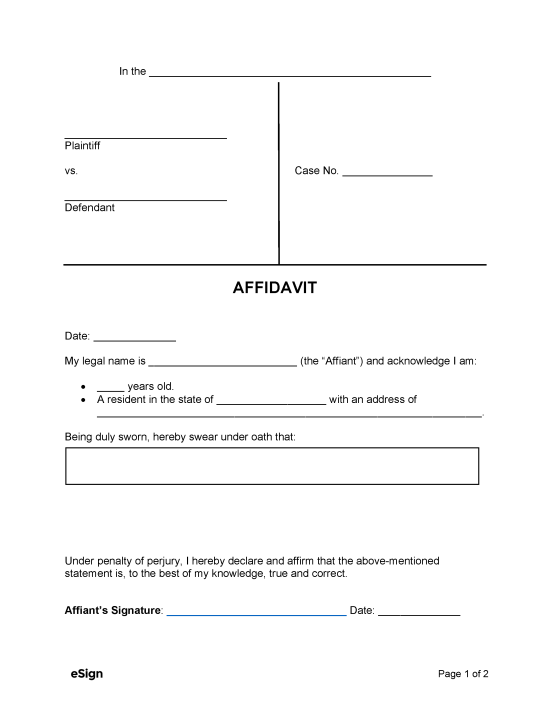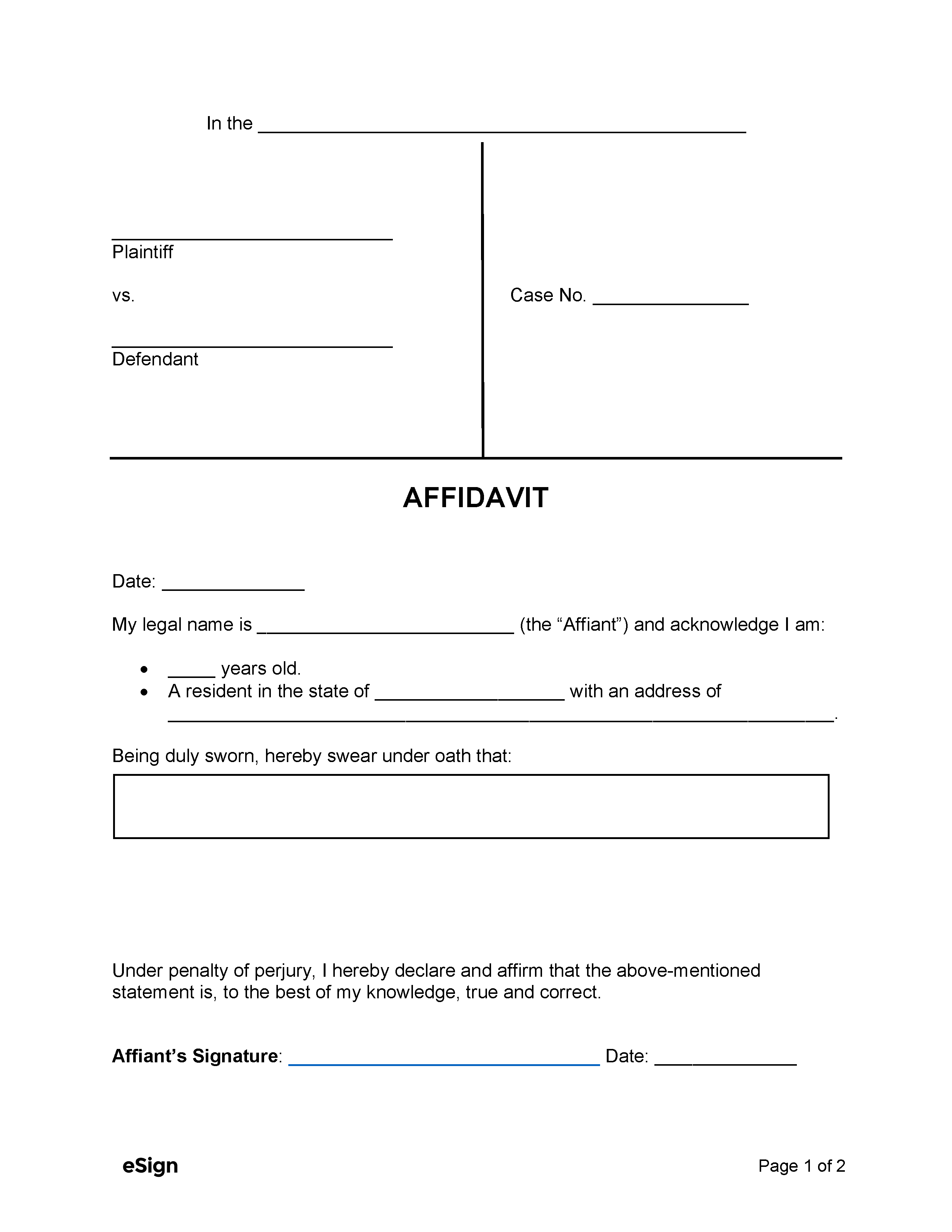Common Uses
Written Testimony
Instead of appearing in court as a witness, a person can sign an affidavit to testify to something they know or have observed.
Supporting Requests
An affidavit can be used to demonstrate to the court that a motion or other request should be granted.
Summary Judgments
In lieu of appearing personally in court for trial, a person can file a waiver of appearance and testimony by affidavit for court with motions for summary judgment.
Requirements for a Court Affidavit
- Court and Case – A court affidavit must indicate the court information (name, jurisdiction, county, and state), case number, and the parties involved in the case.
- Affiant Information – The full legal name and address of the affiant must be included. In some courts, their occupation and relationship to the case may be required as well.
- Statement and Facts – The document must contain the facts that the affiant is swearing to and a declaration that they confirm the legitimacy and truth of those facts.
- Signature and Date – The affiant must sign and date the affidavit to solidify their oath.
- Notarization – A notary public must acknowledge the affiant’s signature, and sign and seal the affidavit.
- Voluntary and Sound Mind – The notary acknowledgment confirms that the affiant signed the form of their own accord and was mentally fit.
Sample
Download: PDF, Word (.docx), OpenDocument
In the [COURT/JURISDICTION/COUNTY/STATE]
Plaintiff: [PLAINTIFF NAME]
vs. Case No. [#]
Defendant: [DEFENDANT NAME]
AFFIDAVIT
Date: [MM/DD/YYYY]
My legal name is [AFFIANT NAME] (the “Affiant”) and acknowledge I am:
- [#] years old.
- A resident in the state of [STATE] with an address of [ADDRESS].
Being duly sworn, hereby swear under oath that: [SWORN STATEMENT].
Under penalty of perjury, I hereby declare and affirm that the above-mentioned statement is, to the best of my knowledge, true and correct.
Affiant’s Signature: ________________________ Date: ________________
State of [STATE]
County of [COUNTY]
Subscribed band sworn to (or affirmed) before me on this [DAY] of [MONTH], [YEAR], by [AFFIANT NAME], proved to me on the basis of satisfactory evidence to be the person who appeared before me.
WITNESS my hand and official seal.
Signature: ________________________
My Commission Expires: _______________
(Seal)

